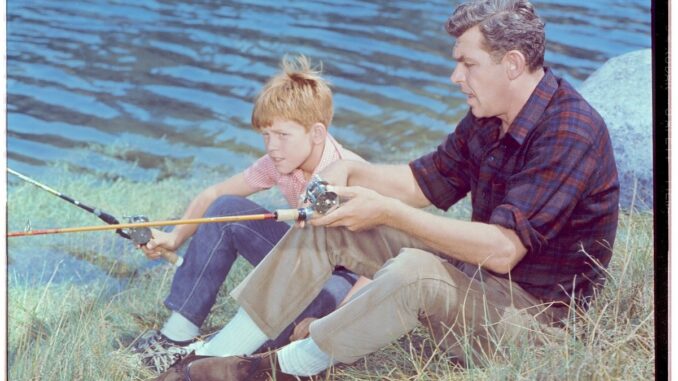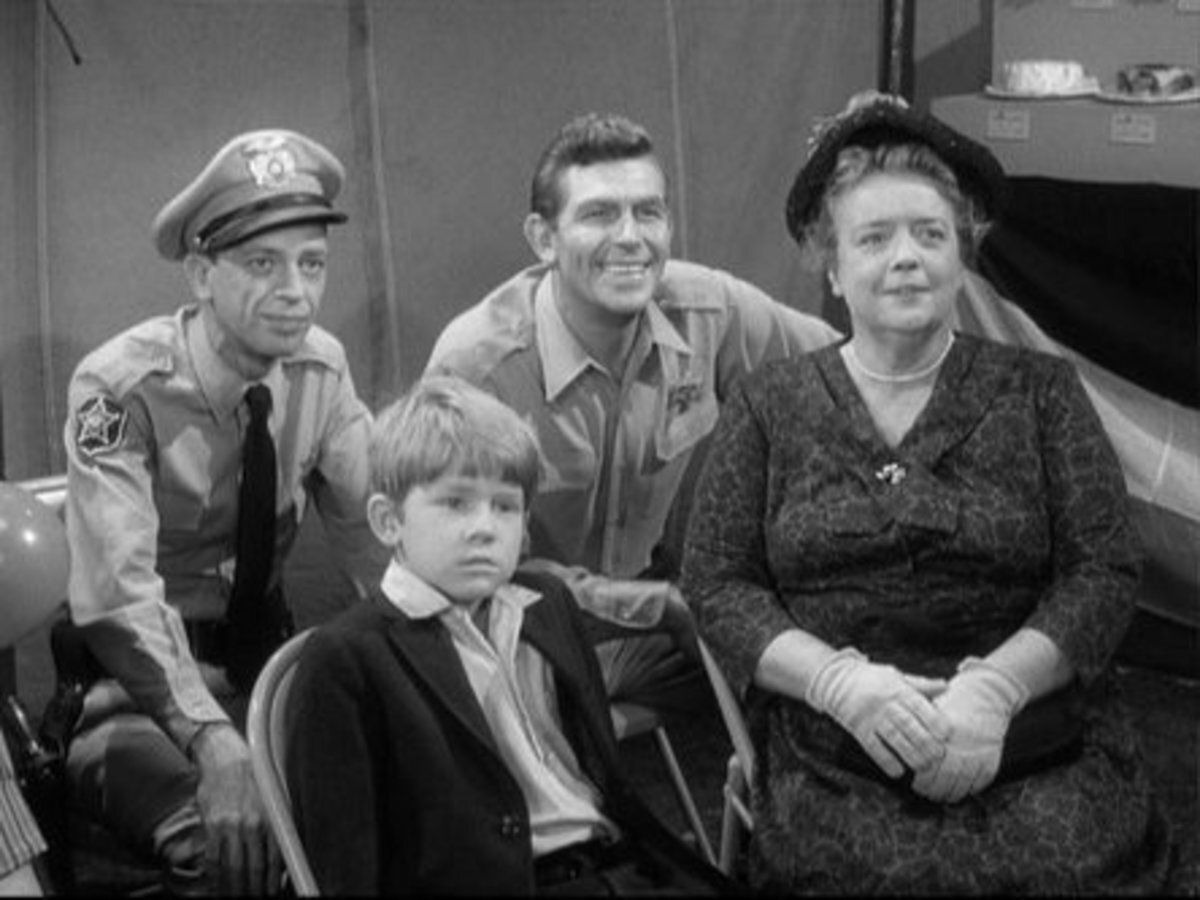
Introduction: The Day Opie Taylor Became a Script Doctor
Picture this: a little red-headed boy, barely out of grade school, walks onto the set of one of America’s most beloved sitcoms and casually tells the producers how to improve their script. Sounds absurd, right? Well, not when that boy is Ron Howard.
Before he became a Hollywood heavyweight behind the camera, Ron Howard was already shaping television history—as Opie Taylor on The Andy Griffith Show. But what most fans don’t know is that Howard’s input didn’t stop at acting. He actually made suggestions to the script. And here’s the kicker: they listened. Why? Because his ideas were “damn good.”
Let’s dive into this remarkable behind-the-scenes story and how a young boy’s voice echoed loudly through Mayberry.
The Origins of a TV Classic
A Wholesome Sitcom That Captured America’s Heart
The Andy Griffith Show debuted in 1960, bringing a mix of down-home humor and small-town charm that captivated audiences. Set in the fictional Mayberry, the show was a comforting escape during turbulent times.
A Young Ron Howard Takes Center Stage
At just six years old, Ron Howard landed the role of Opie Taylor, Sheriff Andy Taylor’s son. Even then, Howard wasn’t just reading lines—he was absorbing the entire environment around him.
Ron Howard—Not Just a Cute Kid
Observant, Curious, and Surprisingly Insightful
Ron was no ordinary child actor. He paid close attention to everything: the crew, the lighting, the scripts, the deliveries. It was like he was in a master class without knowing it.
The Moment That Changed Everything
One day, Howard made a suggestion—an edit to a line that didn’t feel right. Instead of brushing him off, Andy Griffith and the show’s writers considered it seriously. And it worked. From that point on, Ron Howard wasn’t just Opie. He was also, in many ways, part of the creative team.

Why They Listened to Ron Howard
His Suggestions Were Genuinely Good
Howard’s changes weren’t random. They were thoughtful, character-driven, and sometimes even funnier than what the adults wrote. His understanding of pacing and tone was far beyond his years.
Andy Griffith’s Confidence in Him
Andy Griffith wasn’t just the star—he was also a guiding force on set. He recognized Howard’s rare talent and nurtured it. Griffith once said, in so many words, “If it’s damn good, it doesn’t matter how old you are.”
Life on Set for Ron Howard
A Family Atmosphere with High Expectations
The set of The Andy Griffith Show felt more like a second home to Ron than a job. But make no mistake—it was still work. And he treated it seriously.
Learning by Osmosis
Howard didn’t go to film school. Instead, he had Don Knotts, Andy Griffith, and a team of brilliant comedic writers teaching him every day.
Other Cast Members Weigh In
Don Knotts Was Impressed by His Mind
Don Knotts, the beloved Barney Fife, reportedly found Howard’s instincts “sharp” and “naturally funny.” That’s high praise from a comedic legend.
Frances Bavier’s Surprising Approval
Even the more private and serious Frances Bavier (Aunt Bee) saw Ron as more than a child. She once commented on his “maturity and understanding of character.”
Ron Howard’s Early Editorial Voice
How He Gave Feedback
Ron would usually bring up his thoughts casually, either during rehearsal or privately with the writers. Sometimes it was about his own lines, other times about the scene as a whole.
Writers Took Notes—Literally
Writers on the show actually began jotting down his ideas. They didn’t treat it as “cute”—they treated it as “useful.”
What This Taught Ron Howard About Filmmaking
Trusting the Collaborative Process
Howard learned early that collaboration isn’t about ego—it’s about making the product better. That principle followed him into his directing career.
Storytelling From the Inside Out
Understanding character, rhythm, and intention from a young age gave him a foundation few filmmakers ever receive.
How It Shaped His Career in Hollywood
From Mayberry to the Oscars
Ron Howard eventually directed classics like Apollo 13, A Beautiful Mind, and Cinderella Man. His storytelling prowess started with the storytelling he absorbed—and helped refine—on The Andy Griffith Show.
Respect for Every Role
Even as a director, Howard values input from everyone—actors, writers, even production assistants. Why? Because sometimes the best idea comes from the most unexpected place. Just like when he was a kid.
The Legacy of a Child Actor Turned Visionary
Not Just a Footnote in History
This story isn’t just a fun trivia fact. It’s a powerful reminder that talent doesn’t have an age limit. When nurtured, it can bloom early and leave a mark on generations.
Fans Still Feel the Impact
Many of the lines Howard helped tweak are still quoted today. The rhythm, the timing, the feeling—they all carry his tiny, yet mighty, fingerprint.
Revisiting the Scripts Today
Subtle Changes That Made Big Differences
Rewatching the show with this knowledge adds a whole new layer. That punchline you laughed at? That might’ve come from little Ron.
Timelessness Through Teamwork
The show’s lasting appeal comes not just from its actors but from its perfect balance of writing, editing, and delivery. Ron’s input made that triangle even stronger.
Conclusion – The Boy With a Red Pen
Ron Howard may have started as the boy holding Andy Taylor’s hand, but behind the scenes, he was already holding something far more powerful—a red editorial pen. His ability to shape scripts with insight and charm not only impressed the adults around him but set the tone for a lifetime of creative excellence.
The next time you watch an episode of The Andy Griffith Show, keep in mind: some of that magic may have come from a 7-year-old who just knew what worked.
FAQs
Q1: At what age did Ron Howard begin suggesting edits on The Andy Griffith Show?
A: He was around 7 to 8 years old when he started contributing ideas to the script.
Q2: Did the show’s writers often use his suggestions?
A: Yes, especially when the edits enhanced character authenticity or improved the comedic timing.
Q3: Was Ron Howard credited for his script input?
A: No, he wasn’t officially credited, but his contributions were acknowledged by the cast and crew.
Q4: Did Andy Griffith support Ron’s early creativity?
A: Absolutely. Griffith respected talent and always encouraged good ideas, regardless of where they came from.
Q5: How did this experience influence Ron Howard’s future career?
A: It taught him about collaboration, storytelling, and respect for every role on a production—skills that made him a legendary director.